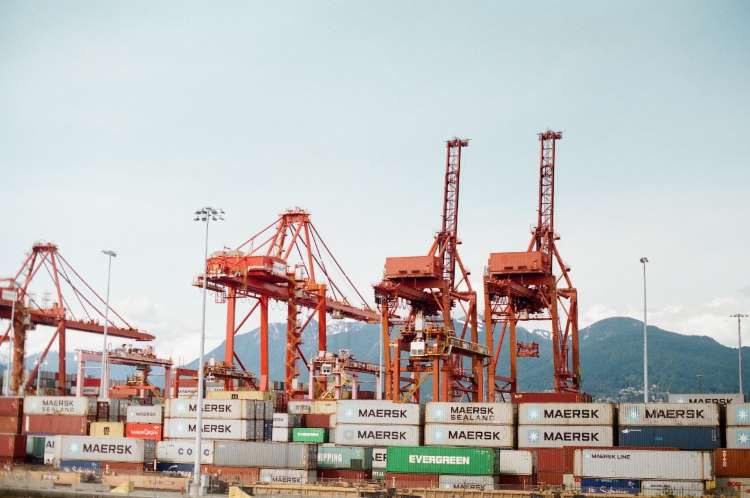
Trade has emerged as a pivotal element in India’s ascent towards becoming a $10 trillion economy. The government’s strategic initiatives to boost exports and seamlessly integrate India into the global economy are manifest in a series of recent policy reforms. These reforms encompass a comprehensive rationalisation of duties and taxes, implementation of concessional import duties, and a rejuvenated commitment to free trade agreements (FTAs). Additionally, they include the establishment of robust import monitoring systems, the enforcement of stringent quality standards, and the adoption of anti-dumping and safeguard measures. Together, these developments mark a significant evolution in India’s approach to international trade policy, reflecting a sophisticated and forward-thinking economic agenda.
Aiming for greater global economic integration, India is focusing on both tariffs and non-tariff measures in its international trade strategy. The current international policy atmosphere and the nature of multilateral trade rules underscore the strategic use of non-tariff measures. These are hard to contest at the World Trade Organisation (WTO) due to the complex process of proving them as trade-restrictive practices.
Developed countries have long used NTMs to regulate imports, often bordering on protectionism. For instance, the sincerity of the West’s criticism against unsustainable trade and resulting regulations, such as supply chain regulations and carbon taxes, is questionable. It is unclear how much of this is genuine concern versus a method to restrict exports from developing countries.
READ I Indian economy: A compelling narrative, but challenges remain
Quality standards as NTMs
Within the scope of NTMs, quality standards or quality control orders are crucial for regulating the import of inferior products and protecting domestic industries. However, quality control can be a double-edged sword. It facilitates the integration of domestic firms into global value chains (GVCs), but can also hinder export opportunities by increasing production and compliance costs. Quality standards, which apply equally to domestic and foreign firms, often act as disguised trade barriers, discriminating against foreign suppliers and reducing trade and economic integration benefits.
The ministry of commerce and industry has tasked the Bureau of Indian Standards (BIS) with formulating quality norms/technical standards for imported and domestic goods, in consultation with relevant ministries/departments. The introduction of quality standards in various sectors raises concerns about their intent and objectives. Firstly, the ministry and its departments lack the mandate to regulate foreign trade for public health and safety, a responsibility of the ministry of consumer affairs, food, and public distribution. This suggests that the introduction of quality standards aims more at regulating imports than addressing health and safety concerns.
While mandatory quality codes to deter subpar imports and bolster domestic industry are justifiable, it is worth noting that many Indian manufacturers import significant inputs and capital goods for production. Stringent quality standards may hinder access to cheaper imports, increasing production costs for domestic firms reliant on imported goods. This issue was highlighted by textile manufacturers dependent on imported fibers like viscose and polyester, in opposition to the quality control orders issued earlier this year.
Secondly, while quality standards with clear Harmonised System of Nomenclature (HSN) codes are introduced in sectors like steel, steel articles, tools, and electrical equipment, many product groups lack HSN classifications. This ambiguity hinders firms’ understanding of the applicability of quality standards on imports, causing delays in cargo clearance and increased trading costs.
Thirdly, quality standards often adopt a one-size-fits-all approach, neglecting the diversity within sectors and the varying impacts of regulations. The footwear sector is a case in point, where quality standards aimed at improving product quality have created divisions among manufacturers and exporters. The BIS’s rules are enforced without considering the industry’s structure, where many small manufacturers lack the capacity and competence to comply. If quality standards increase the regulatory burden without enhancing capacities, they harm rather than help the domestic industry.
While India’s quality control push prioritises consumer safety and product integrity, integrating environmental considerations into these measures presents an exciting opportunity. Stringent standards for energy efficiency, resource utilisation, and waste management could not only safeguard domestic well-being but also position India as a leader in sustainable trade practices.
Imagine Indian exports bearing the hallmark of environmental responsibility, attracting eco-conscious consumers, and fostering green partnerships within global value chains. This approach aligns with the government’s commitment to climate action and paves the way for a future where trade and environmental protection go together.
To propel India’s exports, aligning with global lead firms or integrating within GVCs is often seen as the way forward. However, adhering to global quality standards presents a significant challenge. The government’s push for quality control is relevant but does not address the core issue. Prioritising elements like certification bodies, internationally accredited testing bodies, and making relevant information publicly available is crucial.
Additionally, applying quality standards universally without supporting measures like training, capacity building, financial and technological upgrades can stifle emerging industries and small-scale players. For Indian manufacturing to ascend in GVCs, aligning national and international standards, ensuring interoperability between certifications, and achieving mutual recognition of quality norms in trade agreements are essential. Only then can the Commerce Minister’s vision of having ‘quality standards as the passport for trade’ be realised.
As India becomes a major trading nation, prioritising fair labour practices and worker well-being within GVCs becomes paramount. Stringent quality standards should not come at the cost of exploited workers or unsafe working conditions. Initiatives like promoting ethical sourcing, advocating for strong international labor standards, and ensuring fair wages across GVCs are crucial steps towards responsible trade. By championing human rights and ethical production practices, India can not only safeguard its workforce but also build trust with international partners and consumers, fostering a more equitable and sustainable trade system.
(Abrol is a doctoral scholar at the Center for Development Research, Germany. Singh is an Associate Professor at FORE School of Management, New Delhi. Views are personal.)

